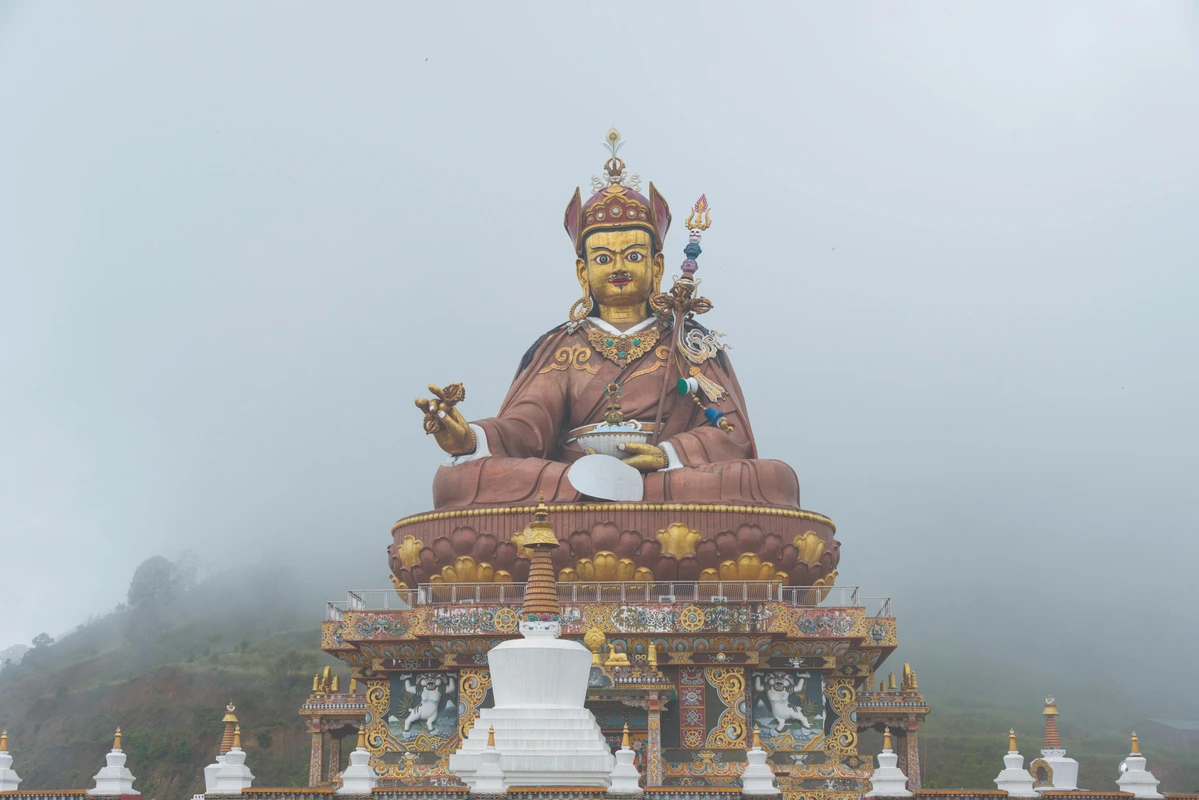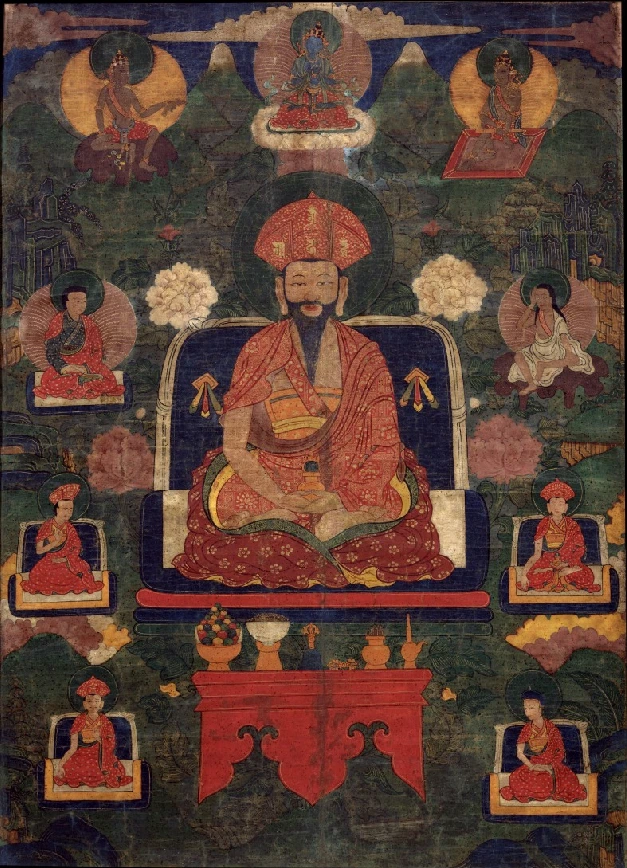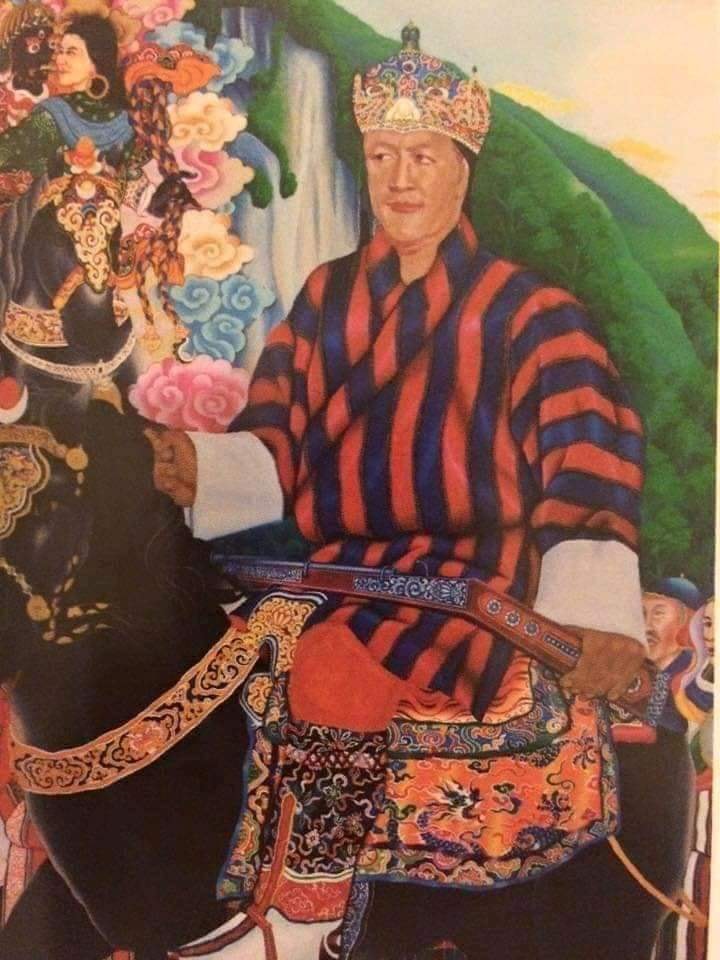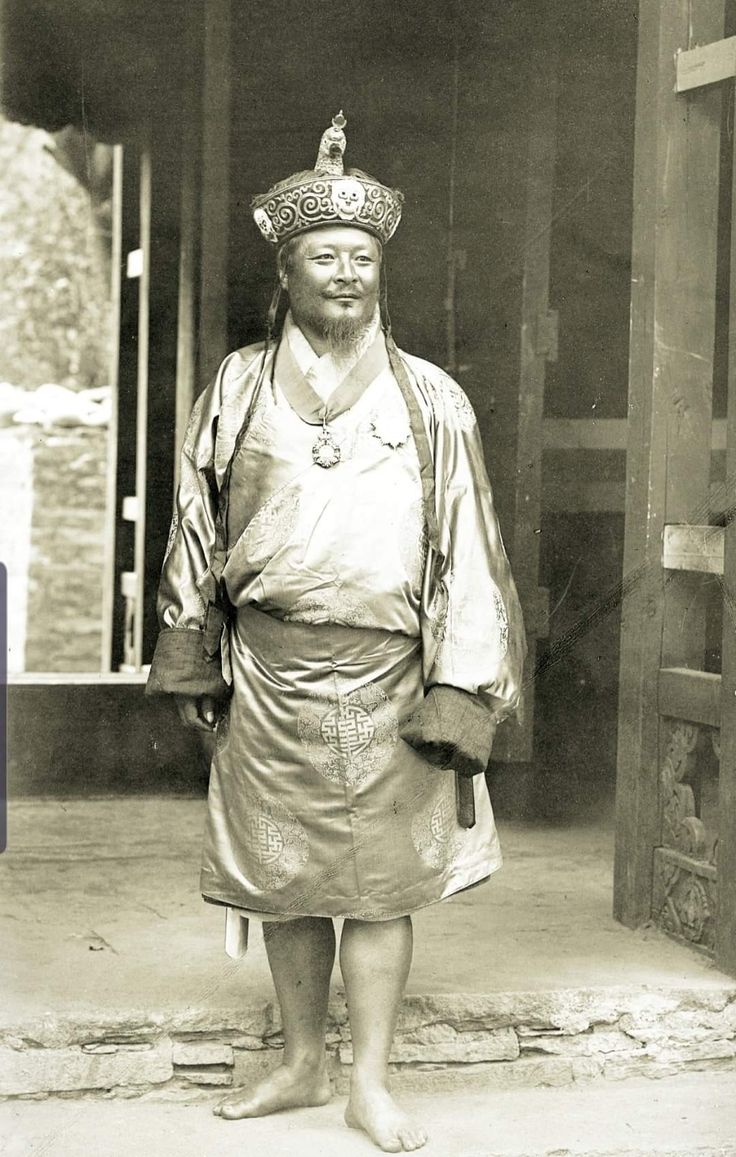Widely revered as the Second Buddha, Guru Rinpoche was a tantric master who arrived in Bhutan in the 8th century to subdue negative forces and firmly establish Vajrayana Buddhism. His teachings and blessings transformed Bhutan’s spiritual landscape, and legends of his miraculous feats live on through sites like Taktsang (Tiger’s Nest), where he meditated. His profound influence on Bhutanese culture, rituals, and identity continues to resonate today
A charismatic Tibetan lama who fled sectarian conflict, Zhabdrung Ngawang Namgyal arrived in Bhutan in 1616 and forged a unified nation from a patchwork of warring valleys. By introducing the dual system of governance and building iconic dzongs, he not only consolidated Bhutan’s political landscape but also strengthened its cultural and religious unity. He is considered the founding father of Bhutan, and his legacy still shapes the kingdom’s sense of national identity.
Known as the Black Regent, Jigme Namgyel was a brilliant military leader and statesman who defended Bhutan against repeated external threats while bringing stability to a fractured administration. His powerful leadership paved the way for the rise of the Wangchuck dynasty, and he is remembered for his bold reforms and unyielding commitment to Bhutanese sovereignty.
Bhutan’s first hereditary king was elected in 1907 after years of civil conflict. His wise leadership brought stability and peace, earning respect both within Bhutan and among British colonial officials in India. King Ugyen Wangchuck forged important diplomatic ties while preserving Bhutanese sovereignty, giving the kingdom a clear and confident voice in regional affairs.
The second king of Bhutan, continued to nurture the kingdom his father had stabilised. During his reign, Bhutan remained peaceful and protected, maintaining its independence in a shifting world while taking early steps to build schools and strengthen governance. His leadership preserved Bhutan’s traditional values while slowly opening to modern ideas.
Known as the Father of Modern Bhutan, the third king of Bhutan launched an era of visionary reforms. He created Bhutan’s National Assembly, built its first roads, established modern hospitals, and introduced the foundations of a legal system. Through careful diplomacy, he opened Bhutan to international engagement while protecting its culture. His balance of change and tradition remains an inspiration today.
Revered for introducing the concept of Gross National Happiness, the fourth king of Bhutan is one of Bhutan’s most respected leaders. He prioritised well-being over economic growth alone, guiding the nation through a delicate opening to tourism, global partnerships, and measured development. His decision to decentralise power and lead Bhutan toward democracy is considered one of the most selfless acts of leadership in modern history.
Bhutan’s fifth king has carried his father’s legacy forward with compassion and vision. Under his reign, Bhutan has strengthened its democracy, invested in education, supported young people, and championed environmental protection. His deep connection with ordinary citizens and his humility have made him a symbol of hope and unity for a new generation of Bhutanese.





